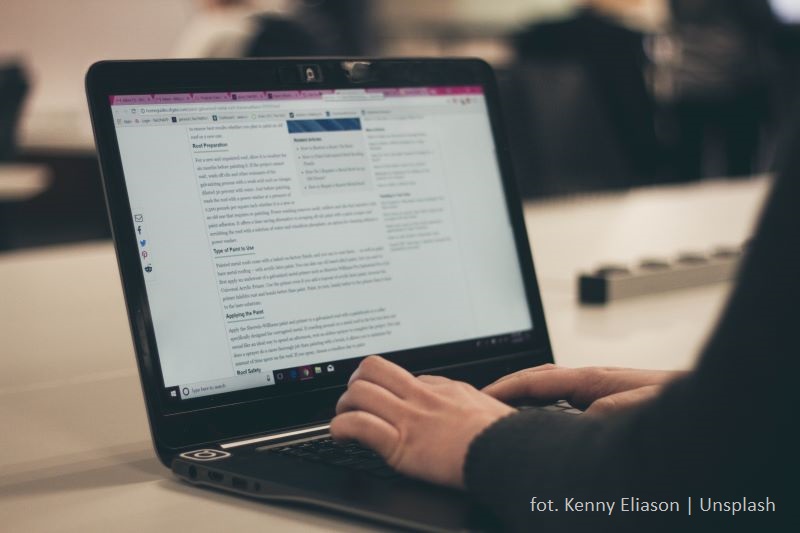Photo by Kenny Eliason | Unsplash
Due to the increasingly frequent use of tools based on algorithms and the so-called artificial intelligence by students, educators and scientists, and many questions from the academic community in this area, a team of scientists from the Silesian Centre for Legal Engineering, Technology, and Digital Competence CYBER SCIENCE has prepared recommendations on content generators, which can be found below.
Recommendations for students, doctoral students, didactic, didactic and research and research employees in connection with the use of algorithms, the so-called AI and others, such as ChatGPT and similar.
- Universities guarantee scientific and didactic openness to modern IT tools. The freedom to use various IT tools, including content generators, is part of the scientific openness of science and didactics.
- Universities recommend a critical approach to Internet sources, as well as knowledge obtained from content generators from unverified knowledge bases, used in the research and educational process. It is necessary to improve the skills of independent, critical thinking and verification of information sources among researchers, educators, students and doctoral students.
- The use of content generators in research and educational work requires the need to indicate their use in a way that clearly distinguishes the independence of research and transparent use of technology, with reference to the sources of obtaining knowledge and the results obtained from content generators.
- The use of IT tools, algorithms and content generators requires respect for ethical principles, as well as copyright and other applicable laws.
- Universities indicate the need for a critical approach to the results obtained by content generators and for taking into account the risk of biased results, susceptibility to defective sources and errors in generated answers. The person using content generators is personally responsible for the data published which was previously generated by the generator.
- Diversity of sources and content is promoted in research and teaching.
- The author of the content generated by content generators, regardless of whether it is text, algorithm, software, image or music, is not considered to be the student, doctoral student, research employee, etc., who used this tool. For scientific or educational correctness, the source of their generation should be provided.
- When creating tests, exams and forms of passing a given class, the possibility of using content generators by students should be taken into account, and thus the need to shape tests, exams, etc. in a way that allows verification of the actual knowledge of students should also be considered.
- We promote the use of content detectors created by content generators and other such tools to verify works submitted by students, including final and diploma works, as well as random selection of works for verification.
- It is necessary to constantly improve the qualifications of students, doctoral students and research and didactic employees in the use of content generators with critical consideration of the results of their use.
- It is necessary to promote knowledge about content generator tools and the ethical and legal principles of their use in the scientific and educational process.
- It is necessary to counteract the abuse of tools such as a content generator in scientific or didactic work, or in regards to crediting students’ knowledge, in a manner contrary to the law, internal regulations of the university and ethical principles and these guidelines.
The team that developed the above recommendation includes scientists from NASK, the University of Silesia in Katowice, the University of Economics in Katowice and the Silesian University of Technology.






